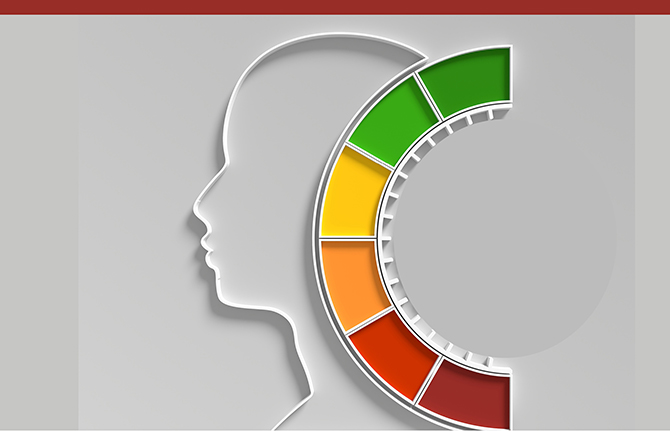
A Rebbe Rooted in Emunah
January 9, 2024
18 Social Challenge Red Flags
January 9, 2024Rebecca Eliason, Psy.D., MS
More and more within schools, we observe a shift from the traditional focus solely on academic education towards an approach that prioritizes the well-being of the whole student. There has been a growing recognition, based on empirical evidence, of the importance of integrating social-emotional learning (SEL) in the classroom due to its demonstrated benefits for students.
Research indicates that incorporating SEL in schools not only aids students in developing essential life skills but also fosters a positive and inclusive learning environment, with additional academic advantages (Wiglesworth et al., 2016).
What Is Social-Emotional Learning and Why Is It Important?
Social-emotional learning refers to the process through which students acquire and develop the knowledge, attitudes, and skills necessary to understand and manage emotions, set and achieve goals, establish positive relationships, demonstrate empathy, and make responsible decisions (CASEL, 2021). By integrating SEL into the school curriculum, educators help equip students with tools to navigate challenges, promoting success both academically and personally, encompassing various crucial elements of a child’s growth.
For instance, integrating SEL practices aids in the development of emotional intelligence. This encompasses the ability to recognize and understand one’s own emotions as well as those of others. These skills enable students to regulate their own emotions, empathize with others, and communicate effectively. According to research from the Collaborative for Academic, Social, and Emotional Learning (CASEL, 2021), students who receive SEL instruction demonstrate improved social and emotional skills, which in turn leads to positive outcomes, such as better behavior, increased academic success, and improved mental health.
Furthermore, it is important to highlight that this equanimity in emotional self-regulation leads to a palpable reduction in instances of anxiety, depression, and behavioral challenges (Greenberg et al., 2017). Consequently, this creates a better framework for cultivating a nurturing and conducive learning environment where students who are emotionally equipped are better prepared to face the challenges of academia and remain focused in the classroom.
There is substantial research on the positive impact of integrating SEL in schools on students’ academic performance. The explanation is that when students feel supported and emotionally secure, they are more likely to engage in the learning process and demonstrate greater motivation and focus.
A meta-study conducted by Durlak et al. (2011) involving more than 200,000 school-age children concluded that students who participated in SEL programs showed an 11 percent gain in academic achievement compared to their peers who did not receive SEL instruction. “SEL programs appear to have as great a long-term impact on academic growth as has been found for programs designed specifically to support academic learning” (Mahoney, Durlak, and Weissberg, 2018).
There are 5 core areas of SEL:
- Self-Awareness
Self-awareness is the bedrock of SEL and involves the profound recognition of one’s emotions, strengths, weaknesses, and intrinsic values. This foundational skill empowers students with a deeper understanding of themselves and their impact on the world around them. Through self-awareness, students become more attuned to their learning preferences, allowing educators to tailor instruction to their unique needs. Encouraging students to recognize their emotions, strengths, and values enables students to develop traits like humility, gratitude, and empathy. - Self-Management
Central to emotional intelligence, self-management focuses on regulating one’s emotions, thoughts, and behaviors across various situations. It instills vital skills in impulse control, stress management, and goal setting. Through self-management, students learn the invaluable lesson of perseverance and the ability to navigate challenges effectively. - Social Awareness
This facet encompasses the art of understanding and respecting the different perspectives of others, particularly those from different backgrounds. It cultivates an environment of empathy and compassion, laying the foundation for a more inclusive, welcoming community with a sense of shared responsibility. Fostering social awareness often emphasizes one’s potential contributions to others, rather than focusing on personal gains. This can help minimize entitlement and improve a communal culture of consideration for others. - Relationship Skills
At the heart of interpersonal effectiveness lie relationship skills—skills encompassing communication proficiency, active listening, teamwork, and conflict resolution. These proficiencies empower students to construct and maintain healthy, harmonious, and deeper connections with their peers and teachers and also in their future careers and personal lives. - Responsible Decision-Making
Responsible decision-making involves the ability to make ethical and prudent choices regarding personal behavior and social interactions. It equips students with the capacity to think critically and contemplate the repercussions of their actions, thereby preparing them for the challenges they will encounter in their future endeavors.
Practical and Effective Integration of SEL in Our Schools
There are many ways to implement SEL successfully in schools. SEL can be integrated into the existing curriculum or taught separately through focused SEL lessons (ex: lessons on conflict resolution or empathy) and programs. With appropriate consideration and planning, these core elements can be effectively integrated into our classrooms within the Torah framework.
The following tips and suggestions are starting points for effectively integrating social-emotional learning into our schools:
General Guidance and Considerations - Approach and Plan: The development of an approach and plan will aid in the successful implementation of SEL. Considerations for a plan might include factors for setting specific or broad goals, guidelines for differentiation for different age groups, and ways programming may be implemented and measured. There are many resources available online to guide this process and outside consultants can be retained for guidance.
- Positive School Climate: Establish a school-wide culture that promotes SEL principles. This can be done, for example, by implementing middos and chesed programs, encouraging respectful communication, and celebrating the unique qualities of different students. A study by Zins et al. (2007) found that schools with a positive climate, including supportive relationships and clear behavioral expectations, had higher academic achievement and improved social-emotional outcomes for students.
- Professional Development: Equip educators with the necessary knowledge and skills to effectively implement SEL practices in the classroom. Offer ongoing professional development opportunities, workshops, and coaching to empower teachers to facilitate a comprehensive SEL program. Research suggests that teachers who receive training in SEL implementation are better equipped to create a supportive classroom environment and promote students’ social and emotional development (Dusenbury et al., 2015). Facilitate regular department meetings for collaboration and integration efforts. Remind staff to serve as strong role models for the children.
- Partner with Families: Parents and other family members play an important role in their children’s social-emotional development. Schools should partner with families to provide resources and encourage SEL activities inside and outside the home.
Integration within the Curriculum:
SEL principles can be embedded into limudei kodesh and limudei chol classes to demonstrate real-life applications of these skills. Research has shown that integrating SEL into academic subjects can lead to improved academic outcomes, increased student engagement, and a positive classroom climate (Jones et al., 2017). Some ideas and examples for implementation include:
· Halacha class and gemara case studies can focus on the emotional aspects of bein adam lachaveiro. Engage students in scenario-based discussions or immersive role-playing exercises where they grapple with and navigate complex decision-making processes. Provide opportunities for students to reflect on the potential outcomes of their choices and encourage them to consider the perspectives of all parties involved. Consider engaging students in ethical dilemmas and real halachic shaylas so they can learn to analyze situations and make responsible halachic decisions. There are many resources available to facilitate this, such as Rabbi Zilberstein’s book, “Achas Shaalti.”
· English classes can explore empathy through literature; students can read and discuss books that deal with interpersonal struggles, such as friendship, bullying, and loss. They can also write reflective stories and respond to prompts about their own experiences and emotions. Students can be assigned introspective exercises like journaling, guided self-reflection sessions, or even creative expression through art or writing. Encouraging students to articulate their feelings and aspirations helps foster a deeper understanding of themselves and how they may be perceived by others. Prompt example: Write a paragraph about a time you empathized with the feelings of another person this week.
· Math classes can foster teamwork and collaboration during problem-solving exercises. Students can work on problems that involve cooperation and problem-solving. They can also learn about financial literacy and budgeting, which can help them to make responsible decisions in life.
· In science class, students can conduct experiments that require teamwork and communication. They can also learn about the impact of their actions on the environment and on others.
Suggestions for Schoolwide SEL Programming and Initiatives
· Morning circles can be used for younger students to share their feelings and learn about SEL topics.
· Explicit social-emotional learning lessons are a good way for students to learn about SEL skills and concepts.
· Chesed programs where students participate in projects that benefit their community can help them develop empathy and social responsibility. Chesed projects supporting the community outside the school walls can be a useful tool to facilitate generalizing these skills.
· Positive reinforcement initiatives that reward students for positive behavior help foster the 5 core SEL skills and build a supportive school climate.
· Mindfulness is the practice of paying attention to the present moment without judgment. It can be taught to students of all ages and can help them to manage their emotions and reduce stress. Incorporate mindfulness practices and reflection sessions into daily routines, providing students with the tools and a space to manage stress and emotions in alignment with derech eretz.
· Create a calm-down corner. This is a designated space in the classroom where students can go to relax and de-stress. It can be equipped with comfortable seating, calming music, and other resources.
· Provide tools and strategies for time management and set achievable academic goals.
· Encourage and facilitate co-curricular programming that broadens students’ skill sets, provides opportunities for enjoyment and growth in different realms, and demonstrates opportunities for thriving in alternate environments.
· Design collaborative projects and group activities that not only bolster academic learning but also serve as an opportunity for cultivating teamwork and enhancing relationship-building skills. Encourage students to actively listen to their peers and provide constructive feedback, creating a culture of mutual respect and support. These skills can be further developed through interactive discussions, role-playing, and group activities (CASEL, 2021).
Integrating social-emotional learning into the school curriculum is essential for the overall well-being and success of students in our collective endeavor to raise bnei Torah. By nurturing students’ social and emotional skills, schools fulfill a critical role in building a foundation for lifelong learning, healthy relationships, and personal development. With the right strategies and support, schools can help raise stronger students who are equipped with the essential life skills they need to thrive as kidushei Hashem.
References
- CASEL (2021). What is SEL? Collaborative for Academic, Social, and Emotional Learning. Retrieved from https://casel.org/what-is-sel/
- Durlak, J. A., Weissberg, R. P., Dymnicki, A. B., Taylor, R. D., & Schellinger, K. B. (2011). The impact of enhancing students’ social and emotional learning: A meta-analysis of school-based universal interventions. Child Development, 82(1), 405-432.
- Dusenbury, L., Zadrazil Newman, C., Weissberg, R. P., Goren, P., Domitrovich, C., & Martínez-López, B. (2015). Teacher training in SEL: An overview of initiatives, outcomes, and potential benefits. In M. W. Osher, A. S. Weist, K. B. Warner, & R. P. Weissberg (Eds.), Handbook of school mental health: Advancing practice and research (pp. 301–315). Springer.
- Greenberg, M. T., Weissberg, R. P., O’Brien, M. U., Zins, J. E., Fredericks, L., Resnik, H., & Elias, M. J. (2017). Social and emotional learning as a public health approach to education. The Future of Children, 27(1), 13-32 1.
- Mahoney, J. L., Durlak, J. A., & Weissberg, R. P. (2018). An update on social and emotional learning outcome research. Phi Delta Kappan, 100(4), 18-23
- Jones, S. M., Bouffard, S. M., & Weissbourd, R. (2017). Educators’ social and emotional skills vital to learning. Phi Delta Kappan, 99(2), 26-31.
- Wiglesworth, M., Lendrum, A., Oldfield, J., Scott, A., ten Bokkel, I., Tate, K., & Emery, C. (2016). The impact of trial stage, developer involvement, and international transferability on universal social and emotional learning programme outcomes: A meta-analysis. Cambridge Journal of Education, 46, 347–376.
- Zins, J. E., Weissberg, R. P., Wang, M. C., & Walberg, H. J. (2007). Building academic success on social and emotional learning: What does the research say? Teachers College Press.
Dr. Rebecca Eliason, Psy.D. MS, is a licensed clinical psychologist with extensive experience in school and clinical settings. Known for her creative approach and leadership, Dr. Eliason has successfully turned around a number of struggling programs, shifting culture, enrollment, student outcomes, and financial sustainability. Dr. Eliason served as Head of School and previously as the Director of Psychological Services at Barnstable Academy. Dr. Eliason consults with schools and families to create innovative counseling, academic, and executive functioning programming to support school development and optimal student growth. Her email is [email protected]

